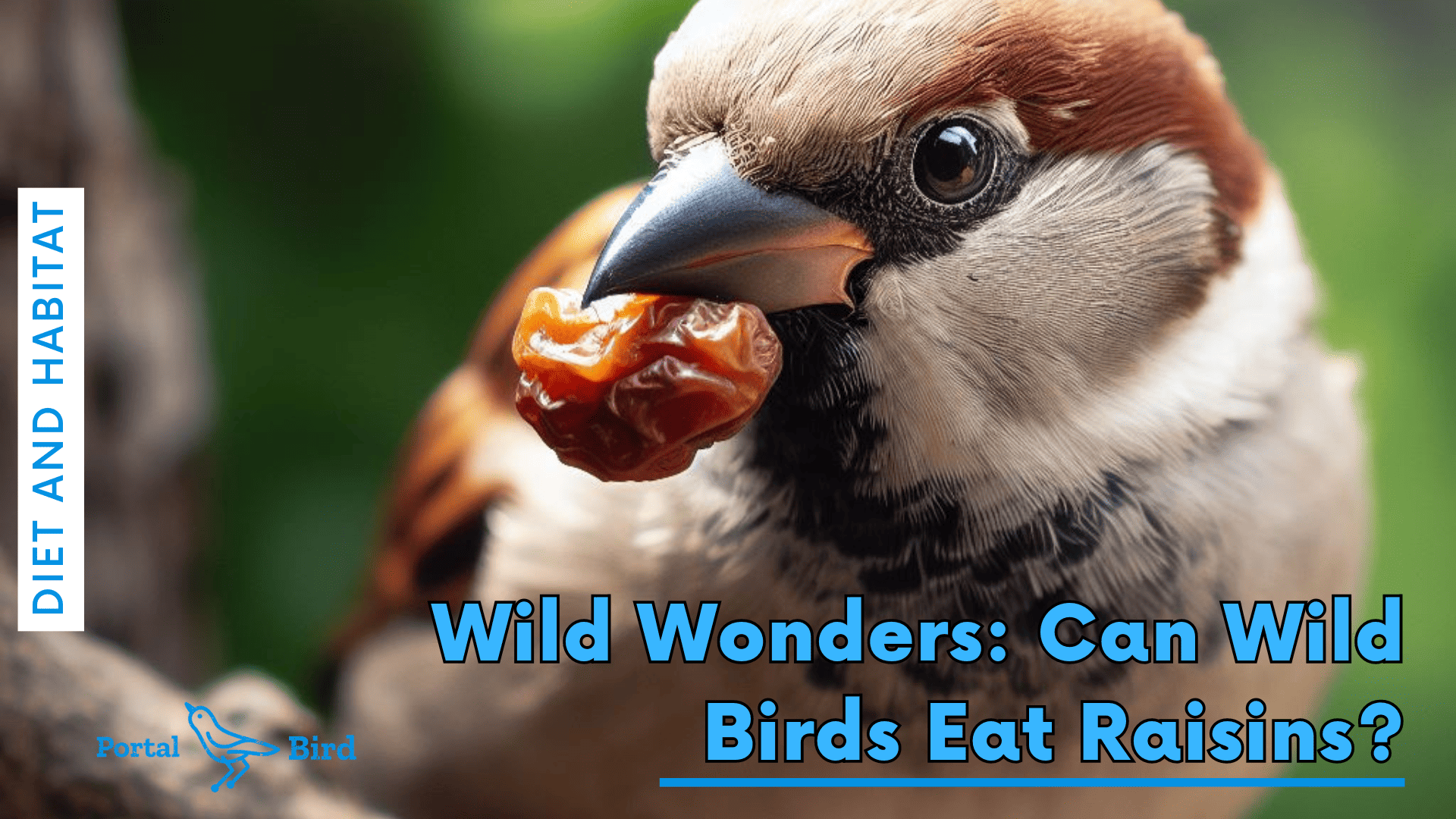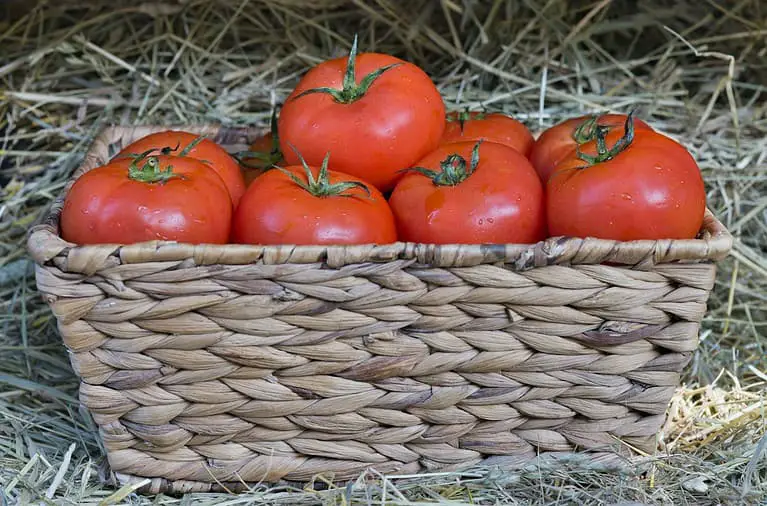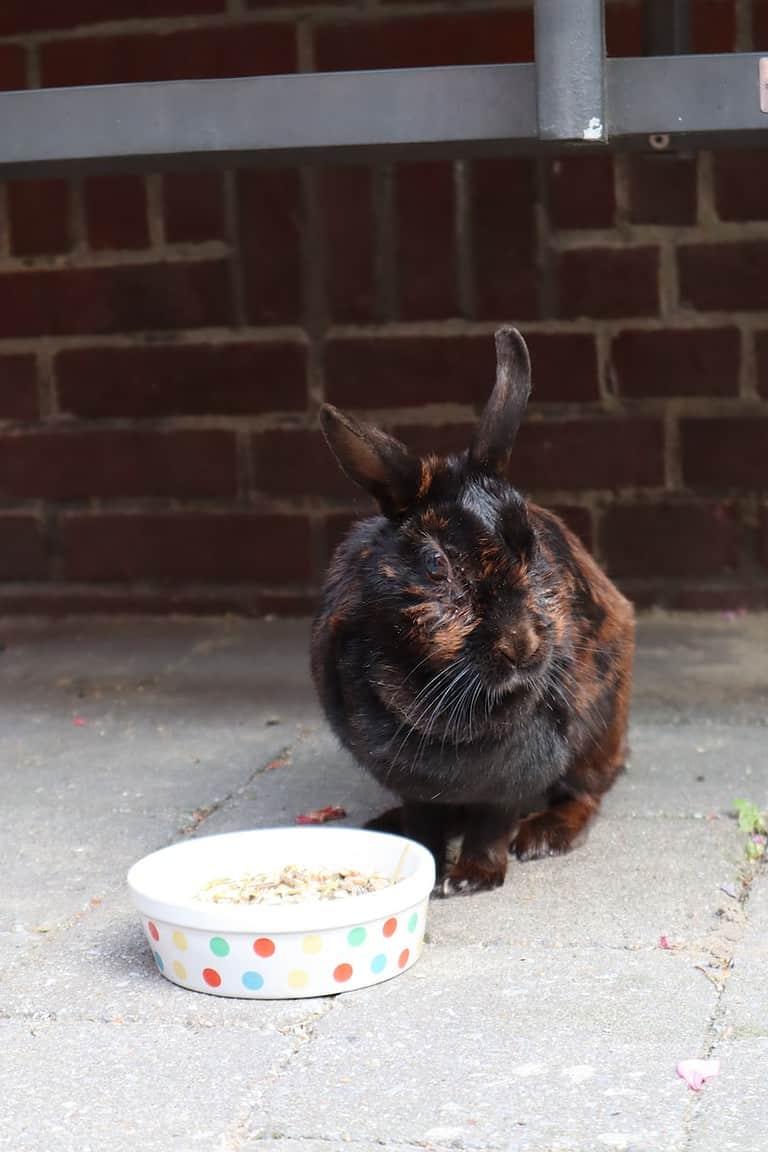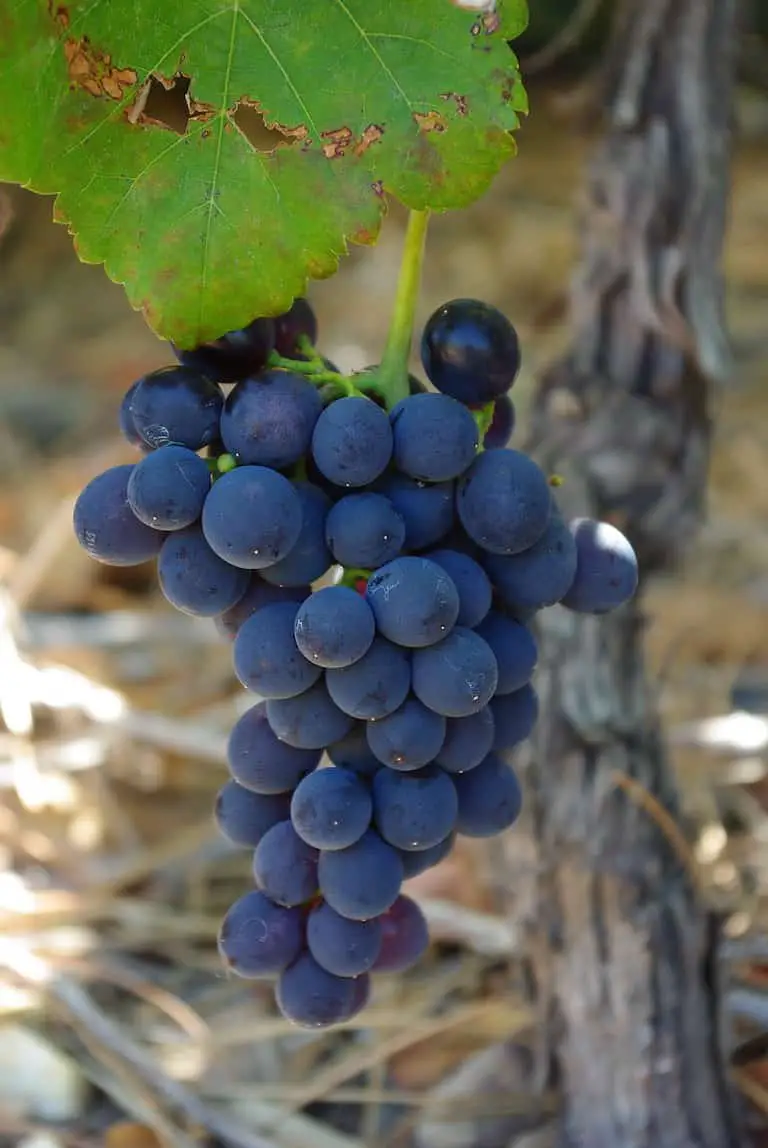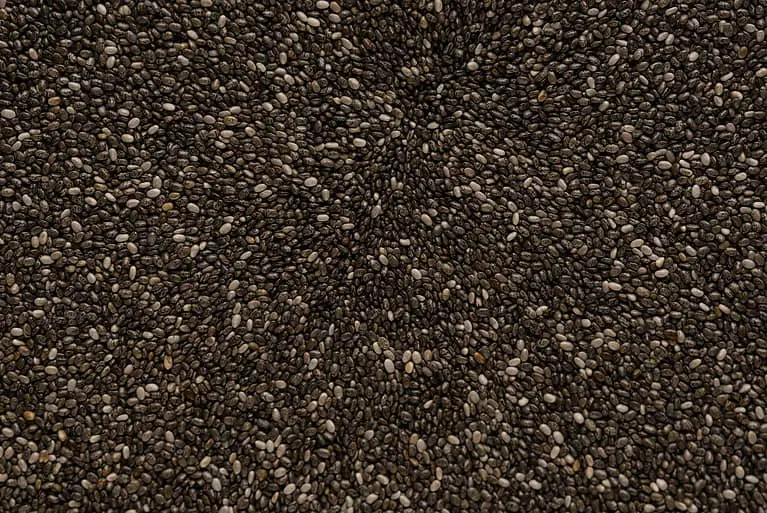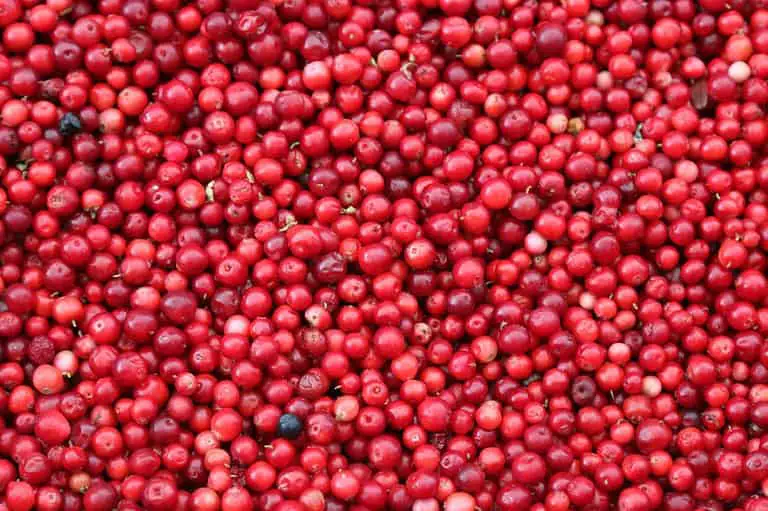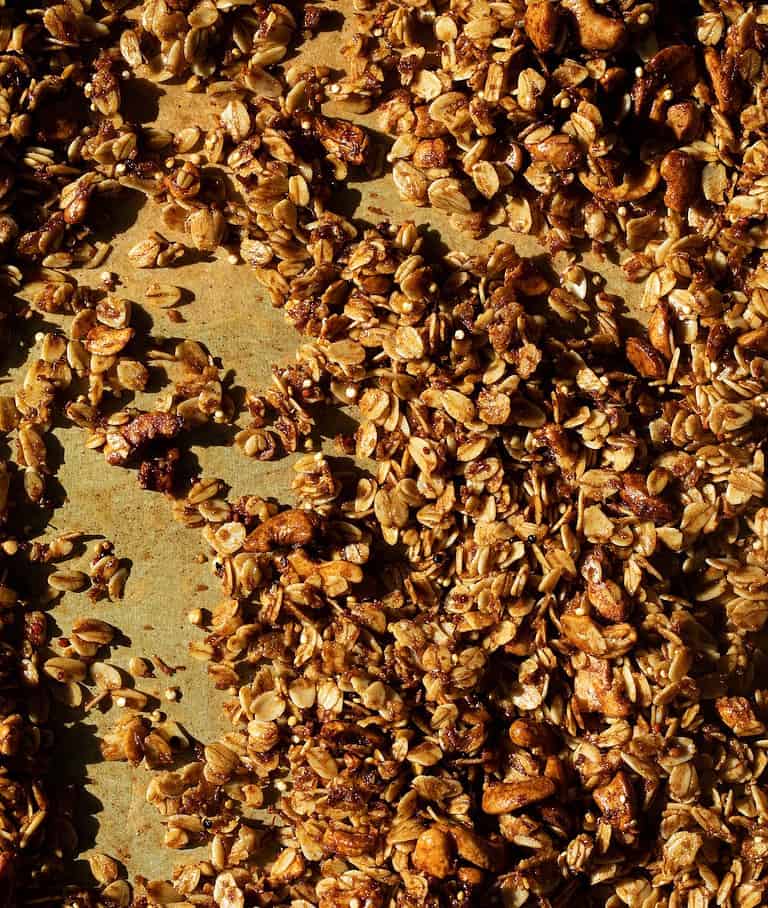Wild Wonders: Can Wild Birds Eat Raisins?
Can Wild Birds Eat Raisins? Answer is yes, wild birds can eat raisins and they love them! Raisins are a rich source of energy, vitamins, and minerals, making them a healthy treat for birds. Some of the birds that enjoy eating raisins include robins, waxwings, mockingbirds, bluebirds, orioles, and tanagers.
However, it is important to offer raisins in moderation, as too many can cause digestive issues. To make it easier for birds to eat, you can soak raisins in water before placing them on a flat feeder. It is also recommended to use plain raisins that haven’t been coated in sugar or other flavorings.
The Curiosity of Wild Birds: Exploring Their Diet Preferences
When it comes to wild birds, their diet preferences can be quite fascinating. These feathered creatures have a knack for exploring a variety of foods, often surprising us with their choices. It’s not uncommon to spot a bird perched on a tree branch, eagerly pecking away at a juicy berry or picking at seeds in a flower bed. One of the joys of observing wild birds is witnessing their curiosity unfold as they sample different foods, showcasing their adventurous spirit.
While each bird species has its own unique tastes, there are some common dietary preferences among our feathered friends. For instance, many birds are attracted to the vibrant colors and sweet flavors of fruits like berries and melons. Others find their nourishment in the form of small insects and worms, relishing the thrill of a successful hunt. Just as we humans have our own favorite dishes, birds too have their go-to meals. On occasion, they may even surprise us with their unusual treats, such as tiny pebbles or delicate flower petals. It’s as if birds have their own secret recipe book, compiled over generations, guiding them to the most delectable and nutritious options.
As bird enthusiasts, we have the privilege of observing these culinary adventures on a regular basis. Perhaps you remember the time when a feathered friend visited your backyard, meticulously picking through your garden, pecking at seeds and savoring the flavors. Or maybe you’ve witnessed a flock of birds swarming a fruit-bearing tree, their wings fluttering in excitement. These moments remind us of the whimsy and wonder that birds bring to our lives.
Understanding the dietary preferences of wild birds is not only captivating but also essential for their overall well-being. By providing them with suitable food options, we contribute to their thriving ecosystems and help maintain the delicate balance of nature. In the upcoming sections, we will explore a surprising treat that captures the attention of wild birds: raisins. Yes, these little dried grapes have been known to captivate our feathered friends, and we’ll uncover the reasons behind their appeal. So, let’s dive into the world of bird culinary delights and discover what makes their taste buds tingle!
A Surprising Treat: Discovering the Appeal of Raisins to Wild Birds
Raisins, those little wrinkled nuggets of sweetness, have long been a favorite snack for humans. But did you know that wild birds are also quite fond of them? It’s true! These feathered creatures have surprisingly developed a taste for raisins, making it quite a surprising treat for them.
One of the reasons why wild birds find raisins appealing is their concentrated sweetness. Just like us, birds have a sweet tooth too! Raisins provide an instant burst of energy and a delightful flavor for our avian friends. Additionally, raisins are a convenient and easy snack for birds to consume. They are small in size, lightweight, and easily digestible.
I vividly remember the first time I offered a raisin to a group of sparrows that frequented my backyard. As soon as I scattered a handful of these tiny treats on the ground, the birds immediately flocked to them. It was an amusing sight to watch those tiny beaks snatch up the raisins, quickly gobbling them down as if in a race. The sparrows seemed to relish the sweetness, hopping around with what appeared to be contentment in their eyes.
So, the next time you’re out bird-watching or simply enjoying nature’s wonders, why not bring along a few raisins as a treat for your feathered friends? You’ll be surprised by how much they appreciate this unexpected delicacy. But before you start offering raisins to wild birds, it’s important to ensure that they are suitable and safe for them to consume. In the following sections, we’ll explore the nutritional benefits of raisins for wild birds and provide some guidelines on how to offer this treat to them responsibly.
Nutritional Benefits: How Raisins Can Provide Essential Nutrients for Wild Birds
Raisins, those little wrinkled fruits that we often associate with cookies and oatmeal, might not seem like an obvious choice for wild birds. However, these sweet treats actually offer a range of essential nutrients that can benefit our feathered friends. High in natural sugars, raisins provide a quick burst of energy for birds going about their daily activities. Imagine munching on a raisin when you need a pick-me-up during a busy day – it’s the same for birds! Additionally, raisins are packed with fiber, aiding in digestion and keeping their digestive systems running smoothly.
But it doesn’t stop there. Raisins also contain important minerals and vitamins, such as potassium, iron, and vitamin C. These elements play vital roles in supporting birds’ overall health and well-being. For instance, potassium helps maintain proper muscle function, while iron supports the production of red blood cells. And let’s not forget about vitamin C – it’s not just for avoiding colds! This essential vitamin is a powerful antioxidant that strengthens birds’ immune systems, helping them ward off diseases and infections. So, providing raisins as part of their diet can be a great way to ensure our feathered friends stay happy and healthy.
Safe Snacking: Ensuring Raisins Are Suitable for Wild Birds
Wild birds can be curious and adventurous when it comes to their diet preferences. While it may seem unusual, raisins have become a surprising treat for these feathered friends. Whether you have observed a robin delightfully gobbling up a raisin or marvelled at a sparrow carefully pecking at one, it is clear that raisins hold a certain appeal for wild birds.
But are raisins suitable for these winged creatures? The answer is a resounding yes! Not only are raisins a safe snack for wild birds, but they also offer numerous nutritional benefits. Packed with essential nutrients such as vitamins, minerals, and antioxidants, raisins can provide a much-needed boost to the avian diet. They are particularly rich in iron and potassium, which are vital for maintaining healthy energy levels and electrolyte balance. Plus, raisins offer a natural sweetness that appeals to birds without the need for added sugars or artificial flavors.
To ensure a safe snacking experience for wild birds, it is important to follow a few guidelines. Firstly, always offer raisins in moderation as part of a balanced diet. Too much of a good thing can be harmful, so it’s best to limit the amount of raisins provided. Secondly, make sure the raisins are fresh and free from any mold or contaminants.
Birds have a keen sense of smell and can detect spoiled food, so it’s essential to offer only the best quality snacks. Lastly, consider placing the raisins in a suitable feeder or scattered on a bird table to prevent them from getting dirty or attracting unwanted pests.
Feeding raisins to wild birds can be a delightful experience for both bird enthusiasts and the feathered visitors themselves. In my own backyard, I have witnessed the joy on the faces of robins, sparrows, and finches as they discover a pile of raisins waiting for them. It’s truly a heartwarming sight to see them chirping away with their beaks full of the tasty treat.
In the next section, we will explore the dos and don’ts of feeding raisins to wild birds, ensuring that these snacks are provided in the safest and most suitable manner. So, get ready to become an expert in raisin snack time for your avian friends!
The Dos and Don’ts: Guidelines for Feeding Raisins to Wild Birds
Feeding wild birds can be a delightful and rewarding experience, especially when it comes to offering them tasty treats like raisins. However, it is important to keep in mind a few guidelines to ensure the health and safety of our feathered friends. Firstly, do choose natural, unsweetened raisins when feeding wild birds. Too much sugar can be harmful to their delicate systems, so opt for plain raisins without added preservatives or sweeteners. Don’t be tempted to offer them chocolate-covered raisins or those sugar-coated varieties often found at the grocery store.
Secondly, do keep in mind the size of the raisins you offer. Wild birds may struggle with larger raisins, so it’s best to provide small and manageable ones. This allows them to enjoy their snack without choking or getting overwhelmed. Don’t be discouraged if they initially seem hesitant to try this new food item! Birds are naturally cautious creatures, and it may take some time for them to warm up to the idea of munching on raisins. Patience is key!
Lastly, do ensure a clean and hygienic feeding area. Just like us, birds appreciate a tidy dining experience. Be sure to clean up any leftover raisins or debris to prevent the spread of bacteria or the attraction of unwanted pests. Don’t forget to regularly rotate the locations of your feeding stations. This helps to prevent the buildup of droppings, which can pose health risks to the birds. By following these dos and don’ts, you can provide a safe and enjoyable snacking experience for your feathered visitors while protecting their well-being.
A Welcomed Snack: Observing Wild Birds’ Reactions to Raisins
As bird enthusiasts, witnessing the joy and wonder of wild birds interacting with their surroundings is an experience like no other. And when it comes to offering them a unique treat, there’s nothing quite like observing their reactions to raisins. These little wrinkled fruits seem to hold a special appeal for our feathered friends, often leaving us amused and entertained.
One remarkable observation is just how quick birds are to notice the presence of raisins. It’s as though they have a built-in radar for spotting these bite-sized treasures. I recall scattering a handful of raisins in my garden and within minutes, a flurry of activity ensued. Birds of various species, from robins to sparrows, descended upon the area, pecking away gleefully at the unexpected snack. It was a delightful sight to behold, with their chirping and fluttering adding a touch of whimsy to the scene.
What’s truly fascinating is that the reactions to raisins vary greatly among different bird species. Some birds, like bluebirds and mockingbirds, display a cautious approach, taking their time before cautiously sampling the fruit. Others, such as finches and starlings, exhibit more boldness, diving in for a quick bite without hesitation. The interaction between these feathered creatures and raisins highlights the diversity of their personalities and feeding preferences.
These observations serve as a testament to the universal appeal of raisins to our avian friends. Whether it’s their sweet taste, chewy texture, or nutritional value, there’s something about raisins that draws in wild birds and leaves them wanting more. So, the next time you embark on an adventure in bird-watching, don’t forget to pack a few raisins along for the journey. You may be rewarded with a delightful display of feathered creatures relishing in this welcomed snack.

